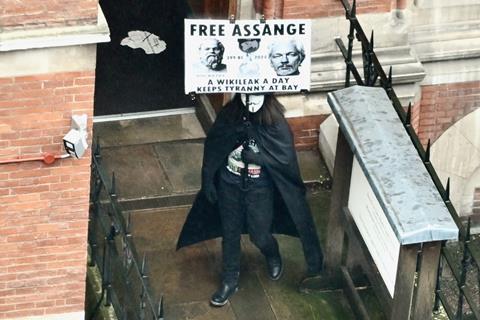‘Extremely regrettable’ technical issues at the Royal Courts of Justice are being investigated, the president of the King’s Bench Division has said after audio system failures during a high profile case. The High Court was hearing a final bid by WikiLeaks founder Julian Assange to appeal against his extradition to the United States on espionage charges.
Crowds of people hoping to observe the proceedings had queued up along the Strand, while hundreds more had applied for remote access to the proceedings online.
So many international correspondents and observers had wanted to watch the Australian national, 52, make his case that many had to watch the proceedings remotely in an overspill room, Court 3.
But it quickly became clear that the remote observers were unable to hear the advocacy of Ed Fitzgerald KC, who opened Assange's case on Tuesday.
The audio was so bad that Dame Victoria Sharp and Mr Justice Johnson had to rise while court staff scrambled to try and move the microphones in court and conduct a sound check.
Problems persisted throughout the day, with the advocates' words often muffled and competing with the sound of loud typing being transmitted over the link throughout.

On Wednesday, the second day of the hearing, Dame Victoria took the opportunity to say she was aware of there had been ‘technical problems’ the day before.
‘It is extremely regrettable and it is being investigated’, she said. ‘The order we made that remote access should be granted to the many hundreds of people who wanted to observe this hearing was an important one. It had at its centre this court’s commitment to transparency and open justice. If there are any further issues today affecting members of the press or the public in court or on a remote link, please do let us know so they can be looked at without delay.’
A short while later, the judges were forced to rise yet again after furious remote observers brought it to the court staff’s attention that counsel for the US government was inaudible. At one point, as lead counsel for the US government, James Lewis KC, was about to explain why Assange would be unlikely to face the death penalty if he were extradited, the audio on his microphone cut out almost entirely.
A HMCTS spokesperson said: 'We apologise for any inconvenience caused by technical issues which were quickly resolved.
'Work is under way to prevent similar issues from occurring in future.'
This article is now closed for comment.



























12 Readers' comments